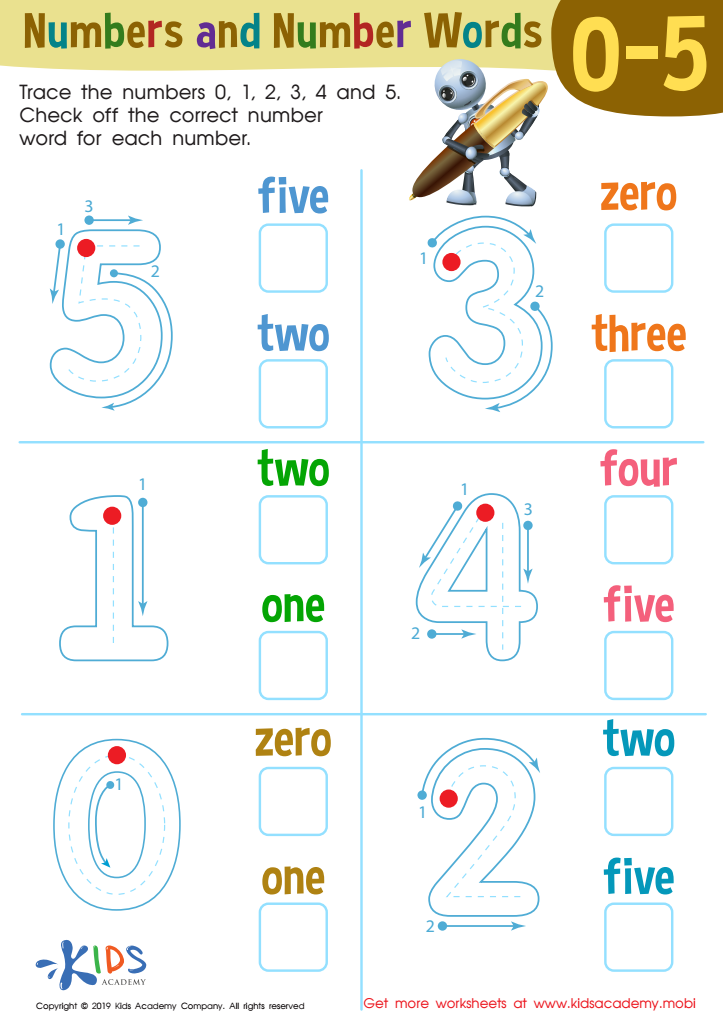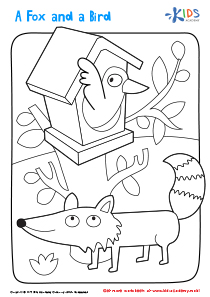Easy Tracing worksheets activities for 7-Year-Olds
3 filtered results
-
From - To




Numbers and Number Words Worksheet


Drawing with a Little Monster Worksheet
Easy Tracing worksheets activities stand out as a remarkably effective tool in the foundational development of children's fine motor skills and literacy. These accessible and engaging activities are more than just simple exercises; they are a cornerstone for early learning, offering a plethora of benefits that extend far beyond the worksheet itself.
First and foremost, Easy Tracing worksheets activities provide children with a structured pathway to enhance their fine motor skills. The act of tracing lines, shapes, letters, and numbers requires precision and control, which in turn strengthens the small muscles in the hands and fingers. This development is essential, not only for writing but also for other daily tasks such as tying shoelaces, buttoning clothes, and using utensils.
Moreover, these activities lay a solid foundation for literacy and numeracy. Tracing letters and numbers familiarizes children with their shapes, making it easier for them to recognize and remember each character. This recognition is crucial in the early stages of reading and mathematical learning, acting as a stepping stone towards more complex skills.
Easy Tracing worksheets activities also promote concentration and patience in young learners. The focused nature of tracing exercises helps children develop their ability to concentrate on a task for an extended period. This improved attention span is beneficial across all areas of learning and daily life.
Additionally, the simplicity and accessibility of Easy Tracing worksheets activities make them an ideal resource for parents and educators. They require minimal preparation and can be easily integrated into a child’s daily routine, making learning both fun and effective.
In conclusion, Easy Tracing worksheets activities are a fundamental part of early childhood education. They not only improve fine motor skills and prepare children for reading and math but also foster important attributes such as concentration and patience. Their simplicity and effectiveness make them a valuable tool for supporting children’s development.
 Assign to the classroom
Assign to the classroom












